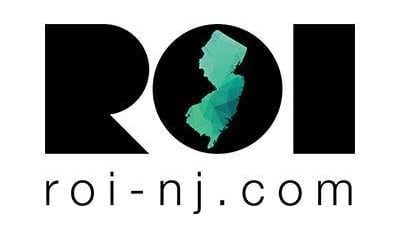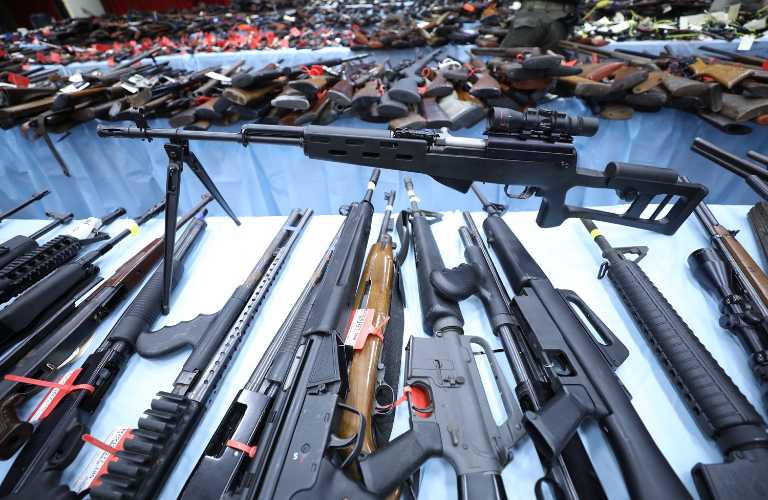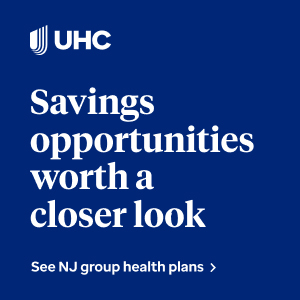
Pullin, Mazzarelli, O’Dowd: Emotional Toll of Gun Violence is Incomprehensible

The right to bear arms has existed since we became a nation. So, too, has the risk of violence that extensive gun ownership creates in our society. Unfortunately, recent mass shooting incidents, fueled by hatred or mental illness, have sparked a great deal of fear and confusion among Americans.
As health care leaders, our concern centers on the treatment of those who are victims of senseless gun violence. And not just those who are shot, but the other victims as well.
Health care providers must care for all victims — the ones who are traumatized because a loved one has been hurt or lost, the ones who were at the chaotic scene of the violence, or who are haunted by the endless media stories they cannot seem to tune out. The emotional toll of this violence is incomprehensible.
Health care facilities attempt to provide refuge from violence and seek to provide healing and hope to all victims of violence.
And yet, sadly, we are not immune to being another venue for violence.
Unstable individuals with guns and other weapons of harm find their way into our buildings and hallways, as well. Earlier this month, a man who blamed his physician for ongoing pain after a recent back surgery shot and killed his surgeon and three other people before fatally shooting himself in a Tulsa, Oklahoma, medical facility. Also this month, a hospital security officer was shot and killed by a prison inmate who was receiving care in a Dayton, Ohio, emergency room.
These incidents are the latest horrifying tragedies in a wave of deadly gun violence occurring across our country, including two heartbreaking mass shootings in Buffalo, New York, and Uvalde, Texas. We mention these tragedies not to make a political statement, but to raise awareness of the consequences of this violence on health care providers and the public health.
As health care workers, healers and caregivers, we work to fix what is broken and put people back together. We bring solutions. We engage with our hearts to stand together against the fear and vulnerabilities of those who need us, so that we can help them through difficult challenges. We look to bring light to dark situations. We seek to be beacons of hope.
The escalation of recent shootings, suicides and other violent behaviors underscores the urgency for a national conversation on what has become a serious public health crisis. We believe health systems have a credible voice and can play a critical role beyond being places to physically and emotionally care for the victims of violence.
People across our country and the communities we serve are hurting and vulnerable. Many people are weary from the pandemic that has impacted our hearts and our health. Violence and death, and particularly mass shootings, hit adults hard. Now, consider what the prevalence and threat of school shootings has done to an entire generation of children, who are growing up with the fear of being shot and killed in a place they should feel safe.
It’s easy to allow ourselves to become numb to the frequency of these unconscionable, violent acts. But we owe it to present and future generations not to let that happen. We recognize there are no easy answers to this national problem. After all, we are dealing with abnormal behavior — the decision to seriously harm or kill other people. That this behavior is increasing calls for something to be done to effect positive change.
We all can play a role. Recently, our two organizations decided to do something to reduce gun violence by sponsoring a law enforcement gun buyback program to help get guns off the street. This effort was part of the largest single-day gun buyback in New Jersey state history. It successfully removed over 2,800 guns statewide. Private organizations, companies and individuals must think of additional creative ways, beyond criticizing politicians, to bring about the change we need.
We encourage organizations and communities to come together, to pool their minds and their resources to address gun violence in society as the urgent public health crisis that it is. We must create meaningful public health campaigns around the safe storage and handling of firearms, and sensible and innovative ways to prevent gun violence in schools, health care settings and public places. Individuals should educate themselves on the issues surrounding gun violence so they may contribute to the effort to bring about necessary and meaningful change.
And, yes, we need to accelerate efforts around our nation’s mental health crisis. We know from the data and what we are all experiencing that the COVID-19 pandemic has exacerbated what was already a growing nationwide mental health crisis.
Violence against any person in any venue is unspeakable. Yet, just because it is unspeakable does not mean we should not speak up about it. Let us put our anger, our shock and our heartbreak into positive change. With the same unstoppable resolution that we seek to cure cancer or slow heart disease, let us advocate, educate and take meaningful action to end gun violence and all senseless violence that is taking such a tragic toll on our nation and our wellbeing.
Dennis Pullin is CEO and president of Virtua Health; Dr. Anthony Mazzarelli and Kevin O’Dowd are co-CEOs and presidents of Cooper University Health Care.






